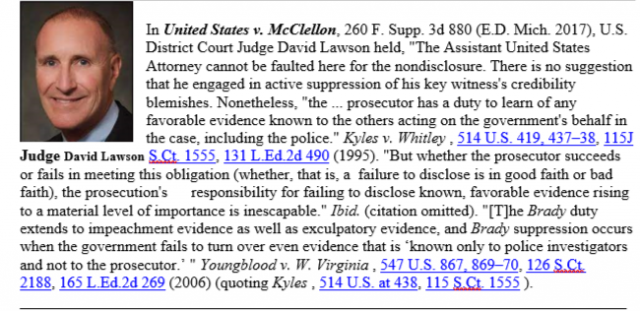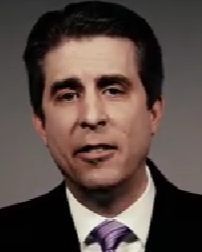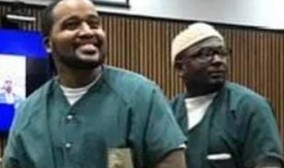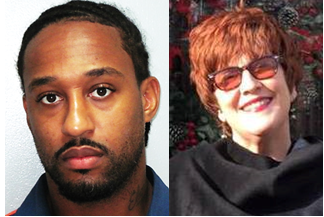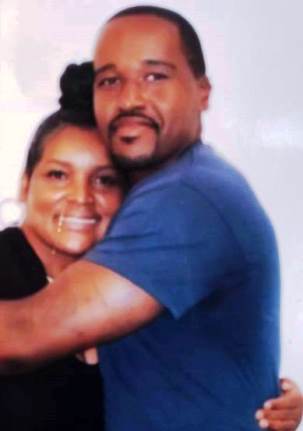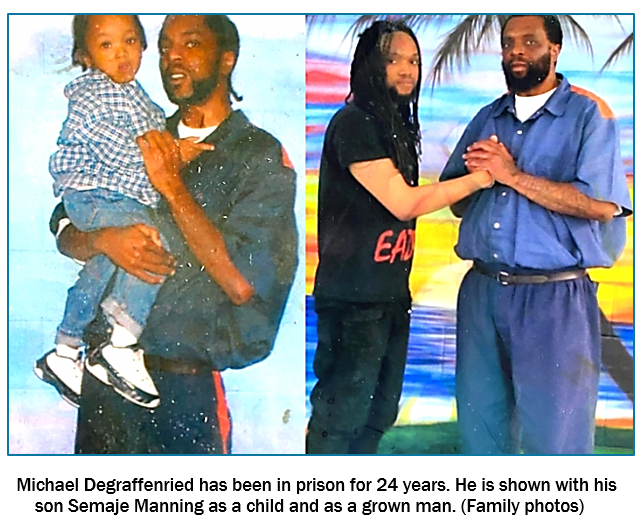 Michael DeGraffenried, convicted of Inkster murder in 2000, is set for an evidentiary hearing Fri. April 12, WCCC Judge Tracy Green, FMHJ Rm. 604
Michael DeGraffenried, convicted of Inkster murder in 2000, is set for an evidentiary hearing Fri. April 12, WCCC Judge Tracy Green, FMHJ Rm. 604
Witness expected to testify he was not the shooter, was not present at crime

Inkster, MI Police Car 2004
Former Inkster Police Sgt. Darian K. Williams, OIC in case, was robbing, extorting drug dealers using his police car from 1999 through 2001, convicted 2003
Inkster PD’s Gregory Hill and Anthony Abdallah, also involved, cited in cases of exonerees George Clark, Kevin Harrington
Exoneree Alphonso Clark, Jr. others still in MDOC, cite role of Inkster police Sgt. Anthony DelGreco in wrongful convictions
Michigan Supreme Court ruling in People v. Hammock, 946 N.W.2d 546 | Casetext Search + Citator is relevant to witness testimony expected at April 12 evidentiary hearing on Degraffenried’s case
By Diane Bukowski
April 2, 2024
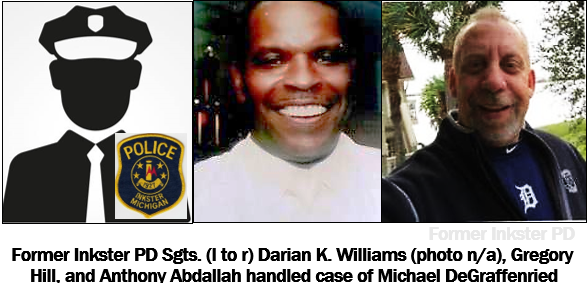 DETROIT — As Michael Degraffenried was being tried for murder and sentenced to 30 to 50 years on March 3o, 2000, the officer in charge (OIC) of his case, Inkster Police Sgt. Darian K. Williams, was robbing and extorting drug dealers using his official police car.
DETROIT — As Michael Degraffenried was being tried for murder and sentenced to 30 to 50 years on March 3o, 2000, the officer in charge (OIC) of his case, Inkster Police Sgt. Darian K. Williams, was robbing and extorting drug dealers using his official police car.
Sgt. Williams was charged with those activities, which occurred from May 1999 to December, 2001, in the U.S. District Court in Chicago, according to court documents. He was convicted in 2003 and incarcerated in a federal prison until Sept. 1, 2005.

U.S. District Court Judge Amy St. Eve
“At trial, the Government presented evidence that from May 1999 through December 3, 2001, Steele conspired with co-conspirators Darian Williams, Ernest “Newt” Butler, and Andre Patterson to extort money from drug dealers through wrongful use of fear and under color of official right,” wrote U.S. District Court Judge Amy St. Eve. “At the time of the conspiracy, Williams was employed by the Police Department of Inkster, Michigan and held the rank of Detective Sergeant.” See: http://voiceofdetroit.net/wp-content/uploads/Daryl-Steele-et-al-inc-Darian-Williams-US-District-Court-opinion-and-order.pdf.
(VOD has contacted the Inkster Police Department for information on whether they terminated Williams after learning of his federal charges but has not received a response yet.)
Williams, with other Inkster detectives including Gregory Hill and Anthony Abdallah, fingered Degraffenried as the drive-by shooter who killed one man and wounded two others June 15, 1999 on Florence St. in Inkster.

WCCC Judge Tracy E. Green/LinkedIn
One of the two wounded men, Willie Wimberly, is expected to testify at an evidentiary hearing April 12 that Degraffenried was not the shooter and was not present during the shooting. At issue is Degraffenried’s claim on appeal of “ineffective assistance of counsel,” which cites his trial attorney’s “failure to investigate” matters such as Wimberley’s statements to Dets. Williams and Hill.
The hearing is set to take place in front of Wayne 3rd Circuit Judge Tracy E. Green, Courtroom #604, Friday, April 12 at 9 AM.
“On June 15, 1999, I was wounded, shot in the leg, in a shooting incident that happened on Florence Street in the City of Inkster,” Wimberly says in a sworn affidavit dated July 19, 2019.
“Another person, Raymond Williams was also wounded and Alondre Davis was killed by the gunfire. . . .I saw the person who fired the shot that injured me but I did not recognize his face. . . After I was released from the hospital, Detective Williams and Detective Greg Hill came to my house and interviewed me again. At that time they mentioned Michael Degraffenried and asked me if Degraffenried was the person who shot me. I told them Degraffrenried was not the person who shot me.”
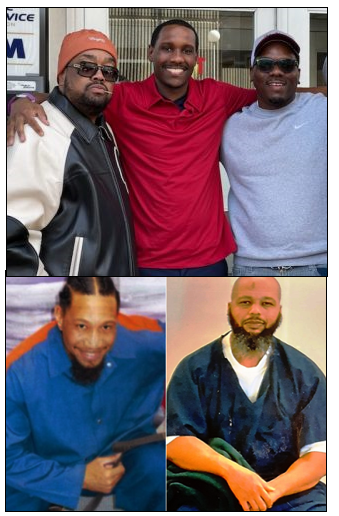
(Top l to r) George Clark, Alphonso Clark Jr., Kevin Harrington; (bottom l to r) Marco and Vargas Johnson.
Wimberly says he knew Degraffenried from the neighborhood and would have recognized him. Later in the affidavit, he says he testified at the preliminary exam with the same statement, but was not called to testify at trial.
“If I had been called to testify at the trial I would have testified, as I did at the preliminary hearing, that I did not recognize the shooter and the shooter was not Degraffenried,” he said.
Wimberly also says that his cousin Broderick Ward, who identified Degraffenried at the exam, was not present during the shooting.
Detectives Hill and Abdallah were cited in the wrongful convictions of George Clark and Kevin Harrington, exonerated in 2021. Wayne County Prosecutor Kym Worthy appealed Harrington’s case FOUR TIMES causing him to suffer through FOUR TRIALS before finally agreeing to his release.
Clark and Harrington are shown in the photo at right (top), with Alphonso Clark, Jr. whose case involved another Inkster officer, Anthony DelGreco.

Wayne Co. Prosecutor Kym Worthy
Wayne County Prosecutor Kym Worthy appealed Harrington’s case FOUR TIMES causing him to suffer through FOUR TRIALS before finally agreeing to his release.
Gregory Hill was also involved in the cases of Vargas and Marco Johnson, which were covered in the Voice of Detroit in 2021, with claims that he elicited false witness statements for trial. DelGreco has been involved in the cases of two other men who are appealing what they say are their wrongful convictions, jncluding Robin Emmanuel Hammock.
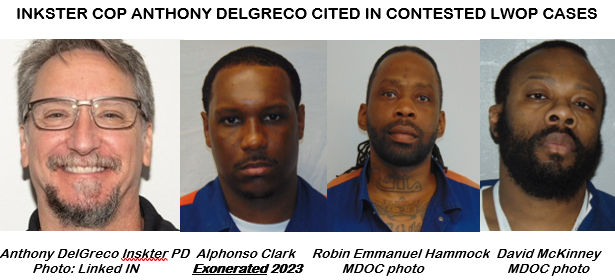
Robin Emanuel Hammock won a ruling from the Michigan Supreme Court validating a witness affidavit obtained from another MDOC prisoner at People v. Hammock, 946 N.W.2d 546 | Casetext Search + Citator.

Michigan Supreme Court Justice Megan Cavanagh
In that ruling, Michigan Supreme Court Justice MEGAN CAVANAGH wrote in part:
“Justice MARKMAN expresses disbelief that Carter was selling marijuana at 2 a.m. when he was 13 years old, that Carter and defendant happened to be incarcerated together eight years later, and that Carter happened upon the Court of Appeals opinion affirming defendant’s conviction. In Justice MARKMAN’S view, this version of events “lacks an air of credibility ….”
“And yet, it is true that people in prison run into past acquaintances, that some people serving long prison sentences spend long hours in the law library falling down legal rabbit holes, and that some of those people were selling marijuana at 2 a.m. when they were 13 years old. These experiences are unlike my own, and though I cannot speak for him, they may also be unlike Justice MARKMAN ’s. But maybe for exactly that reason the judicial function in this matter is not to pass on the credibility of Carter’s story, but only to ask “whether a reasonable juror could find the testimony credible on retrial,” Johnson, 502 Mich. at 567, 918 N.W.2d 676 (emphasis altered).

Former MI Supreme Court Justice Stephen Markman
“Justice MARKMAN weighs these and other considerations and is left with “serious questions regarding Carter’s affidavit ….” Whether or not there are serious questions about Carter’s affidavit, Carter’s corroborated account raises serious questions about Pippen’s account, which sent defendant to prison. And an evidentiary hearing presents the opportunity to answer both sets of questions.”
The ruling in Hammock is now case law binding on all subordinate courts in Michigan, according to VOD’s legal analyst, and certainly applies to the affidavit of Willie Wimberly, who is being writted out from the MDOC for the April 12 hearing in front of Judge Green.
RELATED DOCUMENTS:
http://voiceofdetroit.net/wp-content/uploads/Daryl-Steele-et-al-inc-Darian-Williams-US-District-Court-opinion-and-order.pdf.
Kevin Harrington exoneration at https://www.law.umich.edu/special/exoneration/Pages/casedetail.aspx?caseid=5727
George Clark exoneration at https://www.law.umich.edu/special/exoneration/Pages/casedetail.aspx?caseid=5728
Alphonso Clark, Jr. exoneration at https://www.law.umich.edu/special/exoneration/Pages/casedetail.aspx?caseid=6597
RELATED:
MICH. LIFERS VARGAS & MARCO JOHNSON FIGHT 30-YR. FRAME-UP; CITE INKSTER COP FROM 2 EXONEREES’ CASE | VOICE OF DETROIT: The city’s independent newspaper, unbossed and unbought
WRONGLY CONVICTED, ALPHONSO CLARK JR. LOST MOM BEFORE RELEASE; PUBLISHES BOOK ON GRIEF IN PRISON | VOICE OF DETROIT: The city’s independent newspaper, unbossed and unbought
MICH. LIFER NOSAKHARE ONUMONU WON NEW TRIAL BEFORE JUDGE TRACY GREEN DEC. 2021, FIGHT GOES ON | VOICE OF DETROIT: The city’s independent newspaper, unbossed and unbought See recent article on this case at Key case looms for nonprofit trying to reform system (freep.com)
**********************************************************************************


 URGENT. Funds needed for quarterly web hosting charge of $465.00 by June 19, 2024 or VOD and 13 years of its stories will be taken off the web. VOD is a pro bono newspaper, now devoting itself entirely to stories related to our PRISON NATION and POLICE STATE.
URGENT. Funds needed for quarterly web hosting charge of $465.00 by June 19, 2024 or VOD and 13 years of its stories will be taken off the web. VOD is a pro bono newspaper, now devoting itself entirely to stories related to our PRISON NATION and POLICE STATE.
VOD’s editors and reporters, most of whom live on fixed incomes or are incarcerated, are not paid for their work. In addition to quarterly web hosting charge. other expenses include P.O. box fee of $226.00/yr., costs including utility and internet bills, costs for research including court records and internet fees, office supplies, gas, etc.
Please DONATE TO VOD at:
CASH APP 313-825-6126 MDianeBukowski
***********************************************************************************









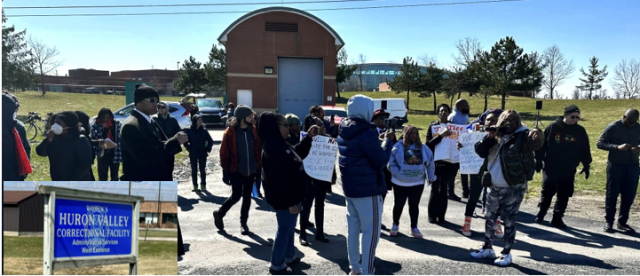
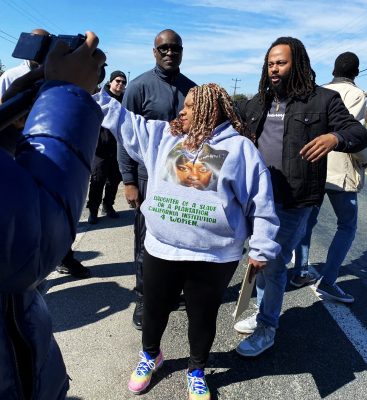
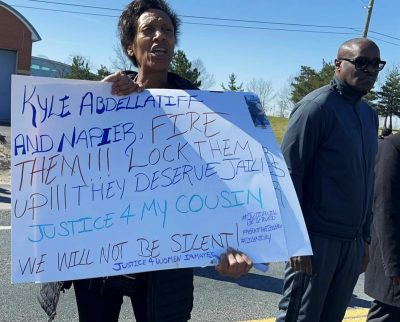
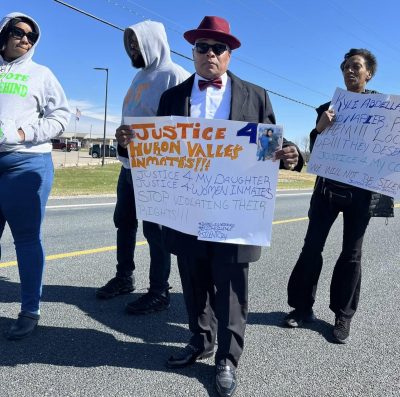
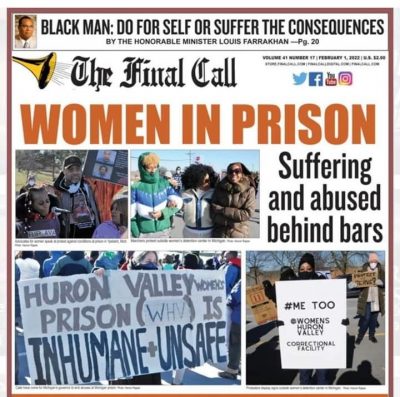 The women imprisoned at Women’s Huron Valley are somebody’s loved ones. We have families and friends that worry about our health and safety.
The women imprisoned at Women’s Huron Valley are somebody’s loved ones. We have families and friends that worry about our health and safety. 
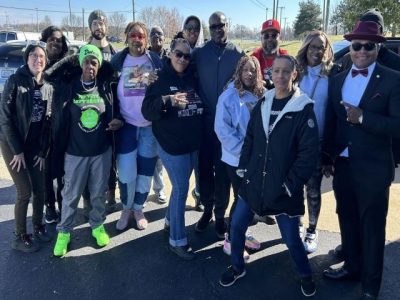

 Michigan Attorney General Dana Nessel’s office represents the Defendants, who are HEIDI WASHINGTON (MDOC Director), JEREMY HOWARD, iSHAWN BREWER, JEREMY BUSH, LIA GULICK,, ED VALLAD, DAVID JOHNSON, KARRI OSTERHOUT, JOSEPH TREPPA, DAN CARTER, JOEL DREFFS, i
Michigan Attorney General Dana Nessel’s office represents the Defendants, who are HEIDI WASHINGTON (MDOC Director), JEREMY HOWARD, iSHAWN BREWER, JEREMY BUSH, LIA GULICK,, ED VALLAD, DAVID JOHNSON, KARRI OSTERHOUT, JOSEPH TREPPA, DAN CARTER, JOEL DREFFS, i


 URGENT. Funds needed for quarterly web hosting charge of $465.00 by June 19, 2024 or VOD and 13 years of its stories will be taken off the web. VOD is a pro bono newspaper, now devoting itself entirely to stories related to our PRISON NATION and POLICE STATE.
URGENT. Funds needed for quarterly web hosting charge of $465.00 by June 19, 2024 or VOD and 13 years of its stories will be taken off the web. VOD is a pro bono newspaper, now devoting itself entirely to stories related to our PRISON NATION and POLICE STATE.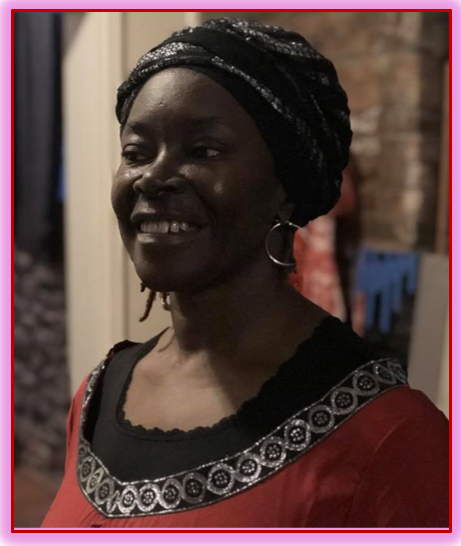
 Vivian Kincaid was a close friend of VOD Editor Diane Bukowski. She was well-known in many circles, from those fighting for justice and freedom for imprisoned family members, to her fellow actors at Enter Stage Right in Port Huron. She was a brilliant, beautiful, courageous woman. She will be sorely missed.
Vivian Kincaid was a close friend of VOD Editor Diane Bukowski. She was well-known in many circles, from those fighting for justice and freedom for imprisoned family members, to her fellow actors at Enter Stage Right in Port Huron. She was a brilliant, beautiful, courageous woman. She will be sorely missed.  Michael DeGraffenried, convicted of Inkster murder in 2000, is set for an evidentiary hearing Fri. April 12, WCCC Judge Tracy Green, FMHJ Rm. 604
Michael DeGraffenried, convicted of Inkster murder in 2000, is set for an evidentiary hearing Fri. April 12, WCCC Judge Tracy Green, FMHJ Rm. 604
 DETROIT — As Michael Degraffenried was being tried for murder and sentenced to 30 to 50 years on March 3o, 2000, the officer in charge (OIC) of his case, Inkster Police Sgt. Darian K. Williams, was robbing and extorting drug dealers using his official police car.
DETROIT — As Michael Degraffenried was being tried for murder and sentenced to 30 to 50 years on March 3o, 2000, the officer in charge (OIC) of his case, Inkster Police Sgt. Darian K. Williams, was robbing and extorting drug dealers using his official police car.






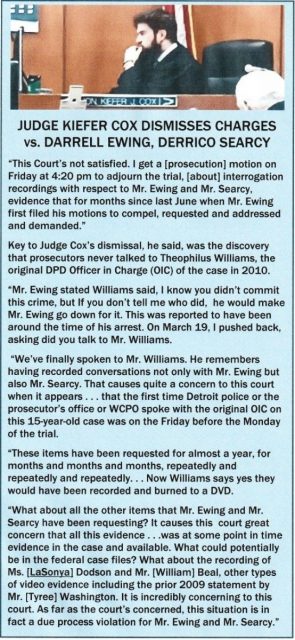 By Diane Bukowski
By Diane Bukowski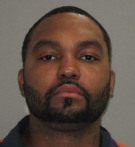

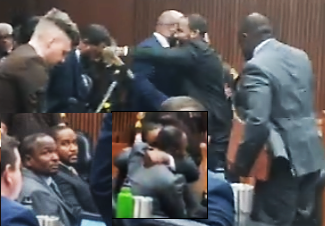

 The Wayne Co. Prosecutor’s Office told WDIV Channel Four News that they will appeal Judge Cox’s ruling.
The Wayne Co. Prosecutor’s Office told WDIV Channel Four News that they will appeal Judge Cox’s ruling.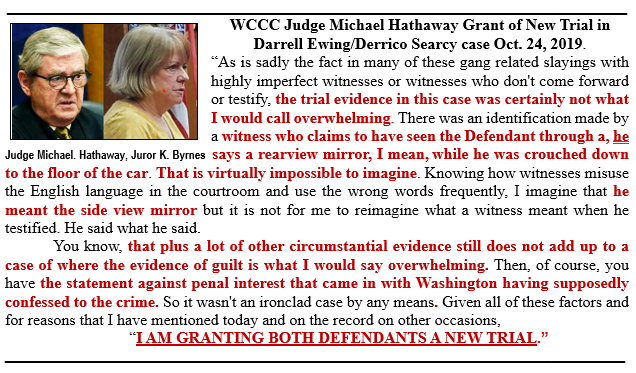

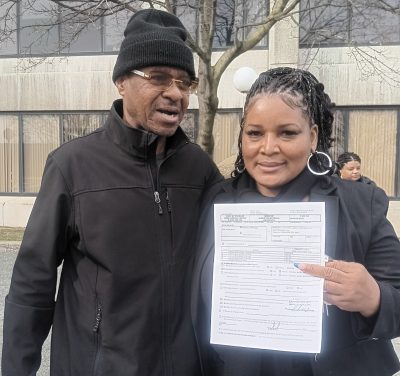
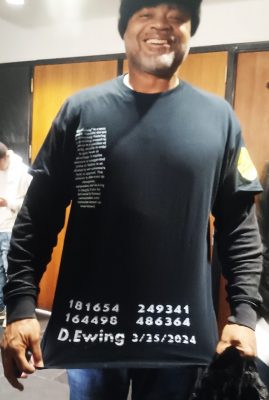

 Voice of Detroit is a pro bono newspaper, now devoting itself entirely to stories related to our PRISON NATION and POLICE STATE. Funds are needed regularly to pay quarterly web hosting fee of $460.00 and other expenses. VOD will disappear from the web if fee not paid.
Voice of Detroit is a pro bono newspaper, now devoting itself entirely to stories related to our PRISON NATION and POLICE STATE. Funds are needed regularly to pay quarterly web hosting fee of $460.00 and other expenses. VOD will disappear from the web if fee not paid.
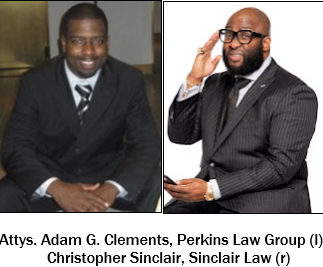 Attys. Christopher Sinclair and Adam G. Clements will now represent Ewing at trial March 25. They appeared in court March 19.
Attys. Christopher Sinclair and Adam G. Clements will now represent Ewing at trial March 25. They appeared in court March 19. On March 19, Cox said the restrictions applied to both sides, but appeared to focus primarily on Ewing.
On March 19, Cox said the restrictions applied to both sides, but appeared to focus primarily on Ewing.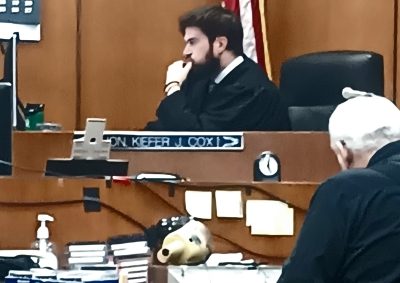

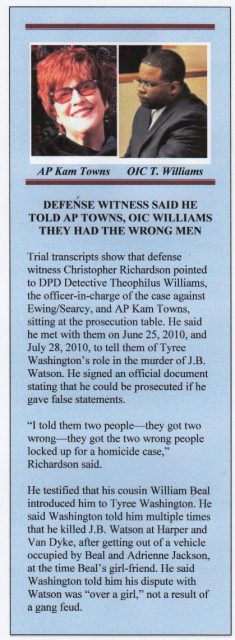 During the hearing, Ewing clarified to the Court that there were two separate files on the case kept during and after the 2010 trial, one by the state, and one by the federal government, which was dealing with a separate case involving witnesses in the state case. Ewing said his defense had to go through a “Touhy” hearing with the U.S. to get various pieces of evidence in their possession.
During the hearing, Ewing clarified to the Court that there were two separate files on the case kept during and after the 2010 trial, one by the state, and one by the federal government, which was dealing with a separate case involving witnesses in the state case. Ewing said his defense had to go through a “Touhy” hearing with the U.S. to get various pieces of evidence in their possession.
 Previously in this case, Wayne Co. Criminal Court Chief Judge Pro Tem Donald Knapp denied Darrell Ewing’s motion to disqualify Judge Kiefer Cox due to his employment in the Wayne County Prosecutor’s Office for four years directly prior to his assuming the bench, and other matters.
Previously in this case, Wayne Co. Criminal Court Chief Judge Pro Tem Donald Knapp denied Darrell Ewing’s motion to disqualify Judge Kiefer Cox due to his employment in the Wayne County Prosecutor’s Office for four years directly prior to his assuming the bench, and other matters.



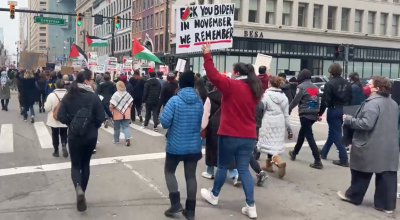
 Voice of Detroit is a pro bono newspaper, now devoting itself entirely to stories related to the U.S. PRISON NATION/POLICE STATE, and the GENOCIDE taking place in Gaza, known as the world’s largest outdoor prison. Funds are needed regularly to pay our quarterly web hosting fee of $460.00 and other expenses. VOD will disappear from the web if fee not paid.
Voice of Detroit is a pro bono newspaper, now devoting itself entirely to stories related to the U.S. PRISON NATION/POLICE STATE, and the GENOCIDE taking place in Gaza, known as the world’s largest outdoor prison. Funds are needed regularly to pay our quarterly web hosting fee of $460.00 and other expenses. VOD will disappear from the web if fee not paid.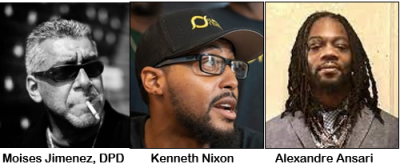 DETROIT — Alexandre Ansari won a $10 million jury verdict Feb. 9 for damages from his wrongful conviction, the highest amount paid out to an individual involving the City of Detroit to date.
DETROIT — Alexandre Ansari won a $10 million jury verdict Feb. 9 for damages from his wrongful conviction, the highest amount paid out to an individual involving the City of Detroit to date.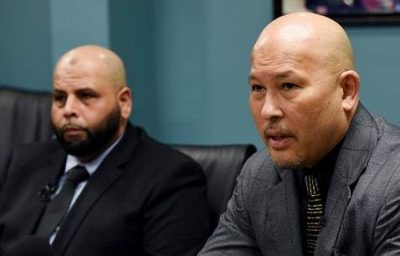

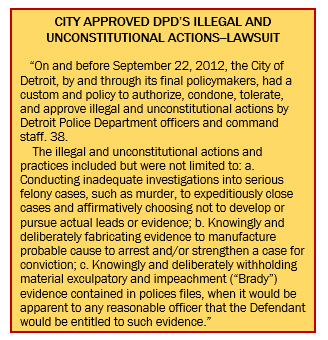 The investigators found that Jimenez concealed evidence favorable to Ansari, including a witness statement describing a heavy-set 300-lb. man as the shooter, not Ansari, in keeping with testimony from other witnesses. Working closely with the U.S. Department of Justice, investigators obtained FBI reports that Jose Sandoval, an alleged drug dealer living in southwest Detroit, committed the shooting in retaliation for the theft of his drugs by Barley and Figueroa, along with Figueroa’s ex-girlfriend.
The investigators found that Jimenez concealed evidence favorable to Ansari, including a witness statement describing a heavy-set 300-lb. man as the shooter, not Ansari, in keeping with testimony from other witnesses. Working closely with the U.S. Department of Justice, investigators obtained FBI reports that Jose Sandoval, an alleged drug dealer living in southwest Detroit, committed the shooting in retaliation for the theft of his drugs by Barley and Figueroa, along with Figueroa’s ex-girlfriend.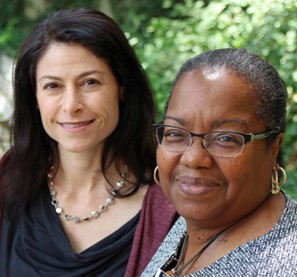

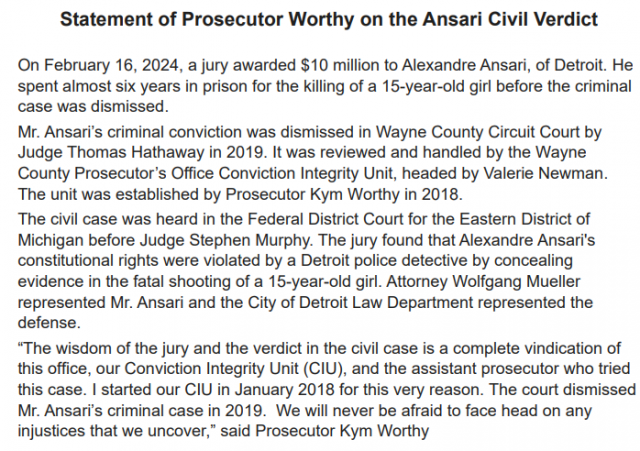
 The WCPO and the City of Detroit disagree on whether trial prosecutor Ericka Tusar knew about Moises Jimenez’ role in the Ansari convictions. Ansari was tried in two connected cases, the murder of Ileana Cuevas and that of Miguel Figueroa’s brother, which took place later in a separate incident. He was exonerated in 2019 in the Ileana Cuevas case, and previously was acquitted of the murder of Figueroa’s brother by a jury.
The WCPO and the City of Detroit disagree on whether trial prosecutor Ericka Tusar knew about Moises Jimenez’ role in the Ansari convictions. Ansari was tried in two connected cases, the murder of Ileana Cuevas and that of Miguel Figueroa’s brother, which took place later in a separate incident. He was exonerated in 2019 in the Ileana Cuevas case, and previously was acquitted of the murder of Figueroa’s brother by a jury.